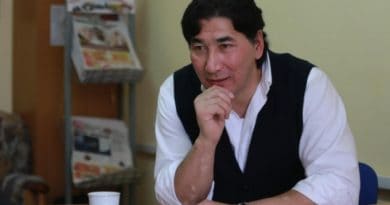Kazakhstan: government approved Action plan in the field of human rights
The government of Kazakhstan approved the plan of priority measures in the field of human rights, demonstrating an unprecedented speed of decision-making and a complete lack of coordination of actions.
Let us briefly recall the chronology of events.
On June 9, Kassym-Jomart Tokayev signed a decree to approve the Plan of priority measures in the field of human rights.
On the same day, on the website of the Open Normative Legal Acts, the Ministry of Justice published a list of planned activities aimed at implementing the Plan. The public of Kazakhstan was given a deadline until June 22 to get acquainted and discuss the proposed initiatives. However, a few hours later, the Human Rights Priority Action plan was removed from the website of the Open NLA.
On June 14, the Plan appeared again on the website of the Open NPA. And judging by the cache on Google, the Ministry of Justice planned to give the country’s population an opportunity to discuss the proposed measures by June 28. However, after a few hours, the Plan disappeared again.
On June 15, the text of a government decree, dated … June 11, “On approval of the Plan of priority measures in the field of human rights” appears on the website of the Information and Legal System of Normative Legal Acts of the Republic of Kazakhstan.
That is, it turns out that the government of Kazakhstan approved the Plan two days after the President’s instructions! And it turns out that the Ministry of Justice knew nothing about this, since they tried to lay out the ill-fated Plan for public discussion on June 14.
Why is this surprising? Because in the government decree, in which the Minister of Justice seems to be included, the following is written in black and white in paragraph No. 3:
“The Ministry of Justice of the Republic of Kazakhstan, on a six-month basis, until July 15 and January 5, should send the consolidated information on the implementation of the Plan to the Office of the Prime Minister of the Republic of Kazakhstan.”
It follows from this that the developer of the Plan, represented by the Ministry of Justice, could not fail to know that the Plan had already been approved. And all these games with laying out the project for public discussion are an imitation of democratic values.
Let’s return to the government decree, or rather to the Plan itself, which is attached to it.
In total, the Plan of priority measures in the field of human rights contains 9 items: 1) improving the mechanisms of interaction with the UN treaty bodies and special procedures of the UN Human Rights Council; 2) ensuring the rights of victims of human trafficking; 3) human rights in relation to citizens with disabilities; 4) elimination of discrimination against women; 5) the right to freedom of association; 6) the right to freedom of expression; 7) human right to life and public order; 8) improving the efficiency of interaction with non-governmental organizations; 9) human rights in the field of criminal justice, enforcement and prevention of torture and cruel treatment.
Each item consists of several sub-items – the goals, most of which are planned to be implemented by the end of this year. For the implementation of several goals, the deadline is set until 2023.
So, within the framework of improving the mechanisms of interaction with the UN treaty bodies and special procedures of the UN Human Rights Council, it’s planned to make additions to some presidential decrees, as well as to agree on draft decisions of international organizations to which Kazakhstan is a member. In addition, it’s planned to ensure the linkage of indicators on human rights with indicators of sustainable development goals in order to ensure the gradual introduction of national indicators for assessing the observance of human rights based on 14 indicators developed by OHCHR.
To ensure the rights of victims of trafficking, the government of Kazakhstan decided to amend and supplement the laws of the country, taking into account the provisions of the Protocol on the prevention, suppression and punishment of trafficking in persons, especially women and children. In addition, the definition of the concept of “human trafficking” and the mechanism of legalizing the stay in Kazakhstan of persons, who have suffered from such types of crimes, and the provision of social services to them will be clarified. In addition, in accordance with the Istanbul Protocol, the criteria for assessing the presence of cruel treatment will be improved, and a separate clinical protocol for the effective investigation and documentation of torture and other cruel, inhuman or degrading treatment or punishment will be introduced. It’s also planned to strengthen the work of the regional hub to counter extremism, illegal drug and arms trafficking, human trafficking, cybercrime and corruption at the Academy of the Prosecutor General’s Office of Kazakhstan.
As for the rights of persons with disabilities, Kazakhstan intends, by the end of this year, to complete the procedure for ratifying the Optional Protocol to the Convention on the rights of persons with disabilities, as well as to involve persons with disabilities in the coordination of projects in the field of construction and their acceptance into operation.
To eliminate discrimination against women, the government intends to exclude the list of jobs on which the employment of women is limited and to take measures to implement the UN Security Council resolutions on the equal and full participation of women in the prevention and resolution of conflicts, ensuring peace and security, and preventing violence against women, raising awareness, strengthening engagement with civil society on conflict prevention and protection of women.
To ensure the right of citizens to freedom of association, by the end of the year, it’s planned to simplify the procedure for registering religious associations, and by February 2022 to expand the mechanisms for exercising the right of citizens to freedom of association.
Concerning the sixth point – the right to freedom of expression, it’s proposed to work out the issue of decriminalizing the criminal article “Insult” with the study of law enforcement practice and international experience, broad discussion with the public and scientific circles.
To ensure the right to life and public order, it’s proposed to increase the number of divisional police stations (and therefore to increase the number of police officers), as well as the construction of modular police posts and the introduction of certain elements of the service model of police work.
In order to increase the efficiency of interaction with non-governmental organizations, it’s planned to transform the mechanism of grant financing for the activities of non-profit organizations in terms of expanding support for civil initiatives.
Most of the measures are planned to be taken to ensure human rights in the field of criminal justice, enforcement and prevention of torture and cruel treatment.
This item consists of nine sub-items. Among them are the adoption of an amnesty law, the development of a centralized automated database of the penal system, a phased transfer of medical support functions for convicted and remand prisoners from the Ministry of Internal Affairs to the Ministry of Health, provision of communication channels for the institutions of the penal system for displaying video data to higher and supervisory authorities, as well as further connection to the National Video Monitoring System in order to ensure the safety of convicts and minimize offenses, expanding the conditions for the employment of convicts and their social adaptation, etc.
In addition, it’s planned to make changes and additions to the Criminal, Criminal Procedure and Criminal Executive Codes of Kazakhstan. Among them: the provision of an adjournment of serving the sentence in case of a serious illness of the convict; immediate execution of a court order on release or replacement with a lighter type of punishment due to a serious illness; prolongation of the period of stay of the child with the mother after he/she reaches the age of three years in case of her release by the end of the term or conditional early release, replacement of the unserved part of the punishment with a lighter type of punishment within a year; provision of video recording of interrogations, as well as court sessions; clarification of the definition of “torture”, as well as the introduction of a definition of “cruel treatment”; ensuring the separation of previously convicted persons from those convicted for the first time by abolishing emergency security institutions (special regime colonies).




